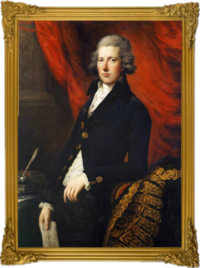Template:/page: Difference between revisions
Jump to navigation
Jump to search
No edit summary |
No edit summary |
||
| Line 1: | Line 1: | ||
{| | {{Infobox officeholder | ||
| | | honorific_prefix = His Lordship The Right Honourable | ||
| | | name = Cameron Romefeller | ||
| | | native_name = <!--The person's name in their own language, if different.--> | ||
| | | native_name_lang = <!--ISO 639-1 code, e.g., "fr" for French. If more than one, use {{lang}} in |native_name= instead.--> | ||
| | | honorific_suffix = MP | ||
| | | image = LordLomond.png | ||
| | | image_size = 200px | ||
| image_upright = | |||
{| | | smallimage = <!--If this is specified, "image" should not be.--> | ||
| | | alt = | ||
|} | | caption = | ||
< | | order = 20th | ||
| | | office = Prime Minister of The Empire of Great Britain and Ireland | ||
| | | module = | ||
{{Infobox officeholder | embed = yes | |||
| | | image = EgBgDc5-removebg-preview.png | ||
| | | image_size = 75px | ||
| | | caption = Royal Government Arms | ||
| | }} | ||
| | | status = <!--If this is specified, overrides Incumbent.--> | ||
| | | term_start = 7 December, 2022 | ||
| | | term_end = Present | ||
| | | alongside = <!--For two or more people serving in the same position from the same district. (e.g. United States Senators.)--> | ||
| | | monarch = [[Elizabeth III, Queen of Great Britain|Elizabeth III]] | ||
| appointed = [[Elizabeth III, Queen of Great Britain|Elizabeth III]] (Within Her Pleasure) | |||
| | | president = | ||
| | | governor_general = | ||
| | | primeminister = | ||
| | | taoiseach = | ||
| | | chancellor = | ||
| governor = | |||
| chair = | |||
| vicepresident = | |||
| viceprimeminister = | |||
| deputy = | |||
| lieutenant = | |||
| vicechair = | |||
| succeeding = <!--For President-elect or equivalent--> | |||
| parliamentarygroup = The British Federation of Labour | |||
| constituency = West Dunbartonshire | |||
| majority = | |||
| predecessor = [[The Duke of Somerset]] | |||
}} | |||
The '''Prime Minister''' is the head of the government. After a general election, the leader of the political party that has won the most seats in Parliament is invited, by the sovereign, to form a government. This person is then known as the prime minister-designate. The prime minister-designate then writes a speech that the sovereign delivers during the State Opening of Parliament. In a Joint Session, Parliament votes on the Speech from the Throne. If a majority of members votes in favor, the prime minister-designate is considered to have enough support to become prime minister. | The '''Prime Minister''' is the head of the government. After a general election, the leader of the political party that has won the most seats in Parliament is invited, by the sovereign, to form a government. This person is then known as the prime minister-designate. The prime minister-designate then writes a speech that the sovereign delivers during the State Opening of Parliament. In a Joint Session, Parliament votes on the Speech from the Throne. If a majority of members votes in favor, the prime minister-designate is considered to have enough support to become prime minister. | ||
The '''Prime Minister''' chairs the cabinet, selects and dismisses ministers, and leads the government’s legislative agenda through Parliament. | The '''Prime Minister''' chairs the cabinet, selects and dismisses ministers, and leads the government’s legislative agenda through Parliament. | ||
Latest revision as of 03:11, 8 December 2022
His Lordship The Right Honourable Cameron Romefeller MP | |
|---|---|
 | |
| 20th Prime Minister of The Empire of Great Britain and Ireland | |
| In office 7 December, 2022 – Present | |
| Appointed by | Elizabeth III (Within Her Pleasure) |
| Monarch | Elizabeth III |
| Preceded by | The Duke of Somerset |
| Parliamentary group | The British Federation of Labour |
| Constituency | West Dunbartonshire |
 Royal Government Arms | |
The Prime Minister is the head of the government. After a general election, the leader of the political party that has won the most seats in Parliament is invited, by the sovereign, to form a government. This person is then known as the prime minister-designate. The prime minister-designate then writes a speech that the sovereign delivers during the State Opening of Parliament. In a Joint Session, Parliament votes on the Speech from the Throne. If a majority of members votes in favor, the prime minister-designate is considered to have enough support to become prime minister.
The Prime Minister chairs the cabinet, selects and dismisses ministers, and leads the government’s legislative agenda through Parliament.